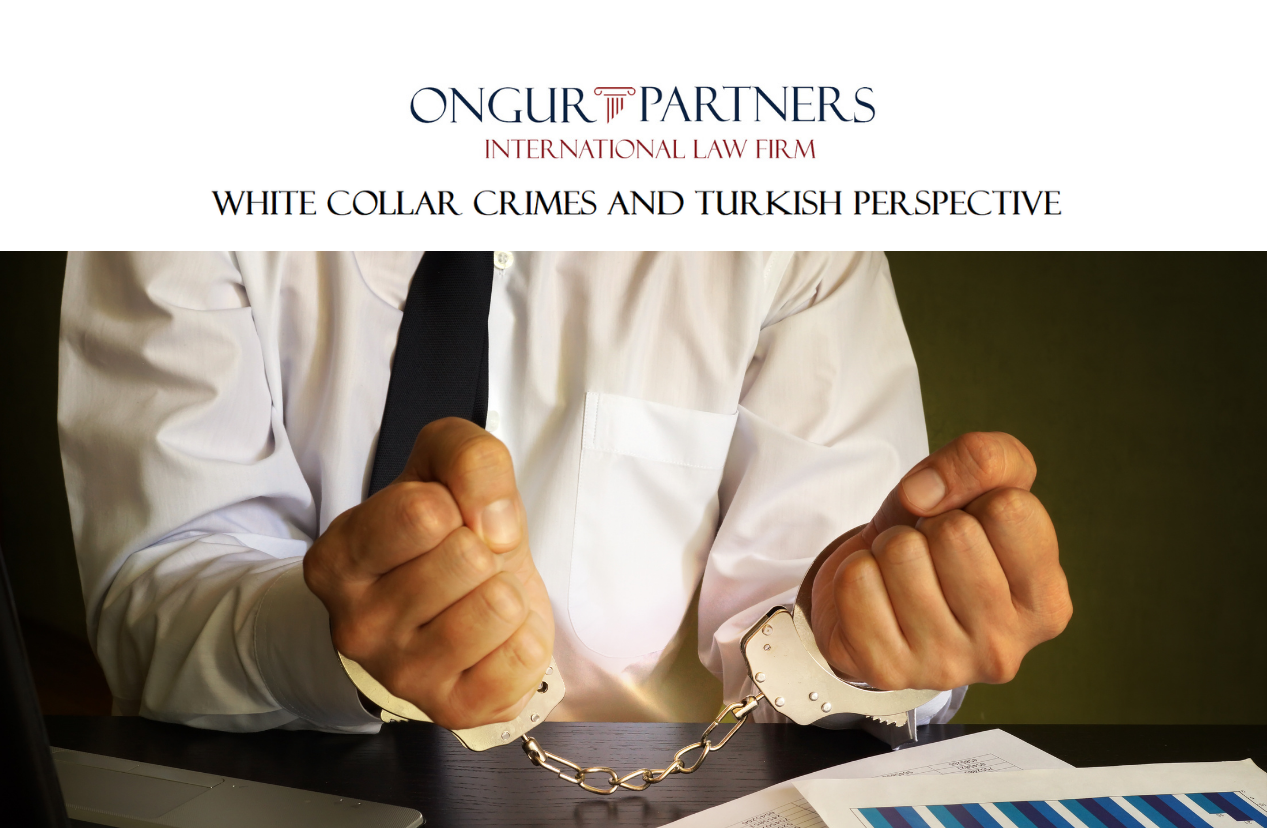WHITE COLLAR CRIMES AND TURKISH PERSPECTIVE
Usual perception of crimes and criminal law tend to focus on straightforward offenses that may not appear to significantly impact corporate or commercial life. Nevertheless, with the emergence of financial crimes or “white-collar crimes” as it is popularly referred to, businesses and the broader commercial landscape are increasingly affected.
In general terms, white-collar crimes can be defined as offenses committed within the scope of one’s profession by individuals who hold a high social status and reputable standing. It is stated that these crimes may lead to significant economic losses for companies and the corporate ecosystem. It should be emphasized that white collar crimes are not violent yet have the potential to significantly jeopardize the survival of a company and the livelihoods of its employees.
In this context, conventional offenses like fraud, corruption, intellectual property theft/piracy, and money laundering, alongside newer categories including those outlined in banking regulations and competition law, crimes linked to digital communication, as well as accounting and tax-related activities, are commonly grouped under the umbrella of white-collar crimes.
In the realm of comparative law, both state entities, such as legislators and law enforcement agencies, and private entities, like companies, implement supplementary measures to deter and combat white-collar crimes. This encompasses the introduction of new penal law provisions, specialized training for police task forces, and the implementation of in-company regulations, which have become widely adopted preventive measures.
It is also observed that, in parallel with the global development of white-collar crimes, this new class of crimes began to attract attention also in Turkey. Both judicial authorities, regulators, and companies are seen to be taking precautions in this regard.In this context, introducing reporting and compliance protocols along with the internal audit requirements, carrying out detailed background checks can be listed as some precautions introduced by the companies. In the regulatory end, it is possible to see that the regulatory bodies in Turkey include anti white-collar crimes measures and enhanced internal/external audit requirements for especially financial transactions.
Similar to law enforcement, the judicial handling of white-collar crimes demands a detailed and specialized approach. Given that these crimes are frequently committed with immense planning and in an organized manner, detecting and substantiating them necessitates a heightened level of expertise. Therefore, it would be advisable for companies conduct internal training initiatives and provide support to their teams by engaging external legal counsel and auditors.
In conclusion, the landscape of white-collar crimes is evolving, demanding a nuanced understanding of these non-violent yet potentially devastating offenses. As demonstrated, businesses and the broader commercial sphere are increasingly susceptible to the impacts of such crimes. It is imperative for companies to not only implement robust preventative measures, but also to collaborate with legal experts and auditors.
The growing recognition of white-collar crimes in Turkey parallels global trends, prompting regulatory bodies, judicial authorities, and companies to take proactive measures. Therefore, it would be advisable for companies carrying out business in Turkey to proactively introduce anti-fraud/anti-money laundering policies as well as seeking support from external legal counsel and auditors both before and after such crimes occur.
In light of these considerations, a proactive and collaborative approach between businesses, legal experts, and regulatory authorities is essential in effectively mitigating the impact of white-collar crimes on the corporate landscape. By doing so, companies can safeguard their operations, protect their employees, and contribute to a more robust and resilient commercial environment.



